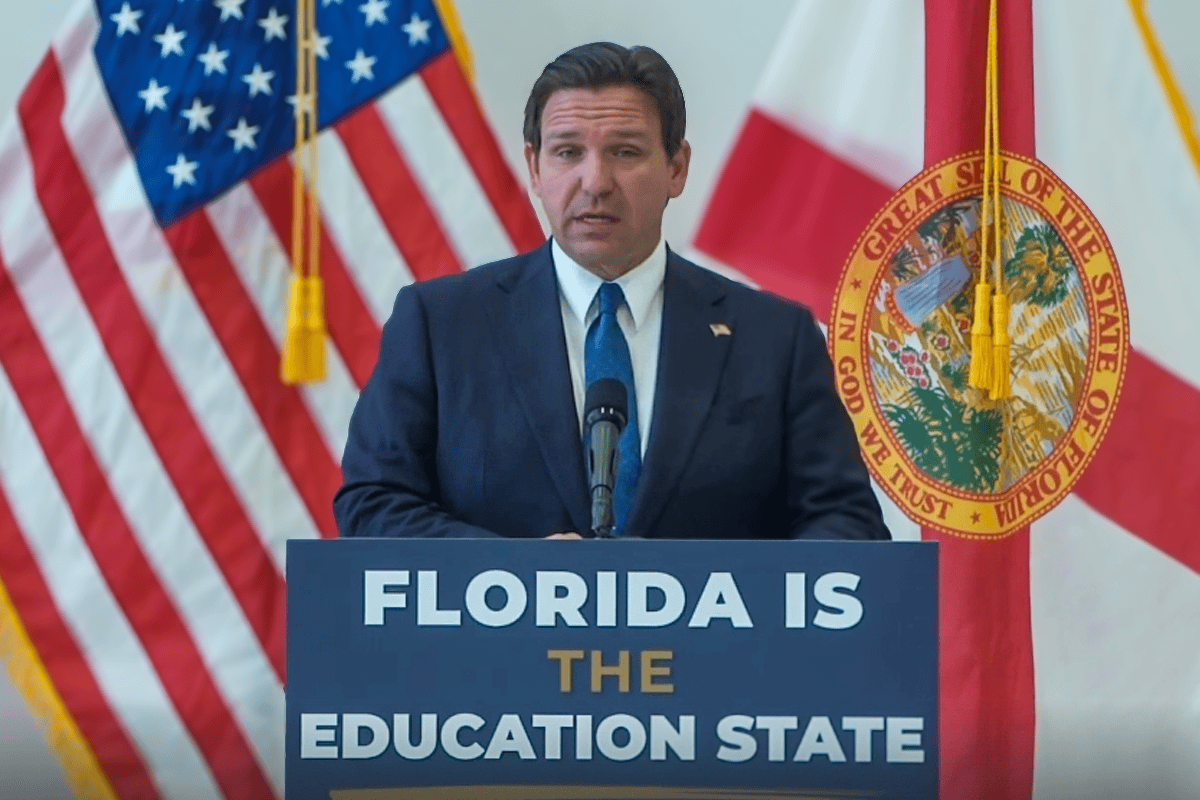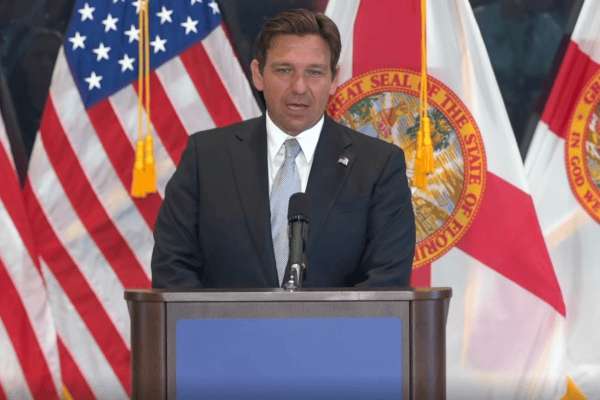DeSantis signs law limiting school book challenges, speeding charter school transitions

JACKSONVILLE, Fla. – Gov. Ron DeSantis signed legislation on Tuesday limiting the amount of times a non-parent can challenge a school library book in a given district.
The bill, HB 1285, also requires that struggling public schools who choose to convert into charter schools must finalize their contract within one year of making the decision.
Rep. Jennifer Canady, R-Lakeland, and Sen. Danny Burgess, R-Zephyrhills sponsored the legislation that ultimately limits individuals who do not have children in a school district to one book objection per month.
Part of the bill’s language was crafted in order to combat what DeSantis referred to as “performative” and “political” actions taken by left wing activists to mock and abuse the privilege that Floridians now have to challenge inappropriate books in the school libraries.
Parents with children in the district who have access to the materials will still be able to challenge worrisome materials as they were before.
The bill also helps military families through the designation of Purple Star School Districts.
The purple Star School of Distinction Program recognizes schools in the state who show their support for military service members.
The legislation would recognize an entire district as a Purple Star School District if 75% or more schools in the area received the designation.
During a press conference, DeSantis explained how the new charter school conversion requirements will speed up the process of helping “turnaround” schools in the state.
He argued that it would lead to less time that students are stuck in failing schools that don’t have adequate educational resources.
“We’re one of the leading states in protecting the rights of parents to be directing the education and upbringing of their children,” DeSantis said.
“We signed the Parents Bill of Rights many years ago,” he said. “We’ve also enacted things like the Parents Rights in Education [Act], as well as curriculum transparency for parents so that they know what is being taught in their kids’ schools.”
DeSantis also mentioned the civics engagement programs that the state has undertaken to help both students and educators.
“We’ve also increased teacher salaries every year since I’ve been governor,” he continued. “We now have in this budget that I’m going to be signing, probably within the next month or two, the biggest increase in teacher compensation. And that’s not just for school districts, that’s also for our public charter school teachers as well.”
“And then of course with our universities, we’ve led the way on making sure they’re not going to be cauldrons of ideological indoctrination,” he said. “We’re focusing on core subjects and things that really [are] the classical mission of a university.”
The governor complimented the work of classical education models in private schools across the state and emphasized how the legislation would help the curriculum and learning style.
“I think that moving away from that over many decades is part of the reason why our education system in this country isn’t as good as it should be and in some places it’s very poor,” he said. “Because classical really focuses on the basics of what it means to to be somebody who’s a citizen of the United States, who’s a citizen in the western tradition and really learns how to think along the lines.”
He compared the style of education to something “similar to how our found fathers were educated.”
“Classical really captures what’s been lost in some of the political mumbo jumbo that we’ve seen over many decades infiltrate our universities and our k-12 school system,” he said.
Education Commissioner Manny Diaz Jr. complimented the governor and legislature’s work to get the bill passed and signed.
He also touched on how the bill would eliminate a lot of uncertainty around transferring college credit earned in high school and applying to one’s post secondary transcript.
“So there’s no more of this, ‘you took that course in high school, but it doesn’t count,'” Diaz explained.
“You have a lot of students in Florida coming out of high school with their Associates degree […] think about the amount of money parents and students are saving in Florida with these options,” he said.
The legislation is set to go into effect on July 1.



